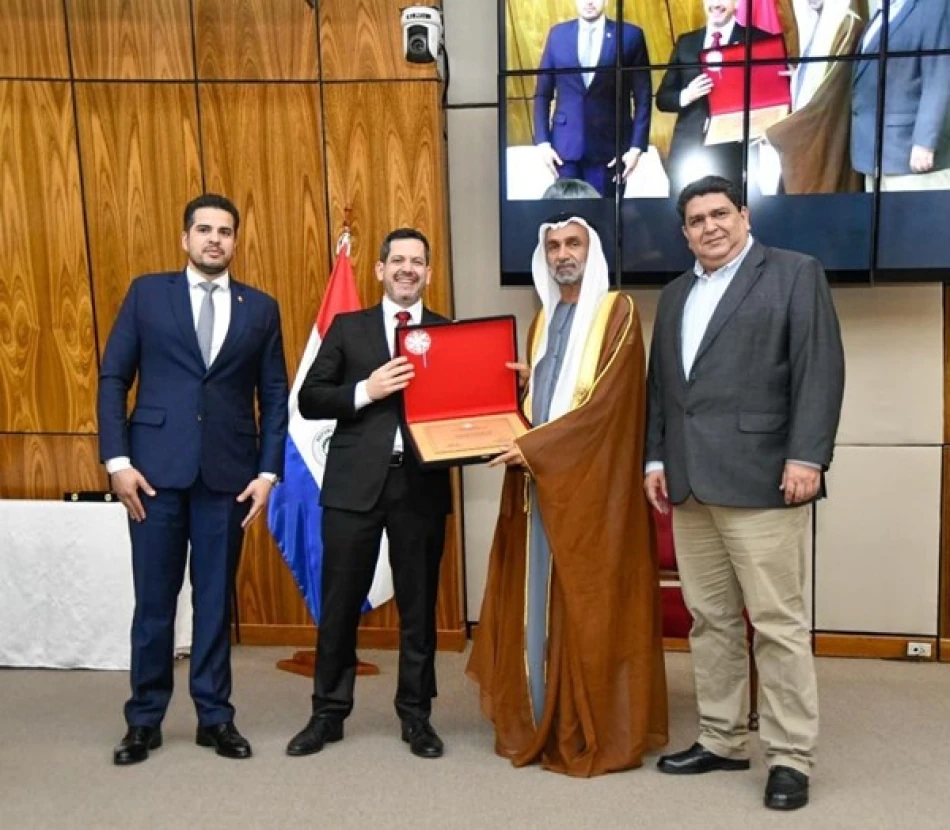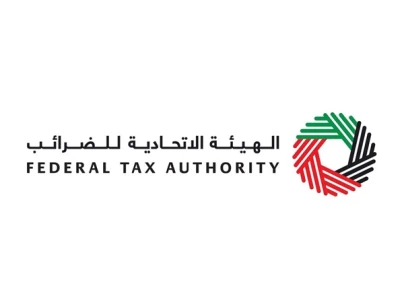
United Arab Emirates Lauded for Promoting Tolerance and Peace Worldwide
UAE's Soft Power Diplomacy Gains Ground in Latin America Through Peace Initiative
The United Arab Emirates is steadily expanding its diplomatic influence across Latin America through tolerance and peace initiatives, with Paraguay's parliament becoming the latest to formally recognize the UAE's global leadership in conflict resolution and interfaith dialogue. The recognition signals a broader shift in how Middle Eastern nations are projecting soft power beyond traditional spheres of influence.
Parliamentary Recognition Highlights UAE's Growing Regional Influence
Paraguay's National Parliament honored Ahmed bin Mohammed Al Jarwan, President of the Global Council for Tolerance and Peace, with the prestigious "Dr. Moises Bertoni Excellence Award" during an official ceremony in Asunción. The award, named after one of Paraguay's most prominent scientists and environmental advocates, represents a significant diplomatic milestone for UAE-Latin American relations.
Dr. Raúl Latorre, Speaker of Paraguay's House of Representatives, presented the award during a formal parliamentary session attended by numerous legislators and political figures. The ceremony underscores Paraguay's recognition of Al Jarwan's contributions to promoting dialogue, understanding, and coexistence values across cultural and religious boundaries.
Strategic Expansion Across Latin America
The UAE's approach mirrors successful soft power strategies employed by other Gulf states, particularly in regions where traditional Western influence has faced challenges. Since its establishment, the Global Council for Tolerance and Peace has systematically built partnerships across Latin America, securing cooperation agreements with the majority of national parliaments on the continent, plus five regional parliamentary bodies.
This network-building strategy reflects a sophisticated understanding of Latin American political dynamics, where parliamentary diplomacy often carries significant weight in shaping foreign policy directions. The UAE's focus on tolerance and peace messaging resonates particularly well in a region that has experienced decades of internal conflicts and is now prioritizing sustainable development and democratic governance.
Market and Geopolitical Implications
For investors and policymakers, the UAE's expanding Latin American footprint signals potential opportunities in trade, infrastructure development, and energy cooperation. The Gulf state's proven track record in diversifying its economy beyond oil, combined with Latin America's abundant natural resources and growing consumer markets, creates a compelling partnership framework.
The timing is particularly strategic, as Latin American nations increasingly seek alternatives to traditional partnerships with the United States and Europe. The UAE's non-aligned foreign policy stance and emphasis on economic cooperation without political conditionality offers an attractive alternative for countries seeking to diversify their international relationships.
Broader Context of Middle Eastern Soft Power
The UAE's Latin American strategy parallels similar initiatives by other Gulf states, but with a distinctly different approach. While Saudi Arabia has focused primarily on energy partnerships and Qatar on sports and media investments, the UAE's emphasis on tolerance and peace initiatives addresses deeper social and political concerns in the region.
This approach builds on the UAE's domestic model of multicultural coexistence, which has proven attractive to Latin American societies grappling with social integration challenges. The country's positioning as a bridge between East and West, combined with its economic success story, provides credible backing for its soft power initiatives.
Long-term Strategic Vision
Al Jarwan's acceptance speech emphasized the Global Council's commitment to expanding its international presence and working with regional and international partners to promote tolerance, development, and just peace worldwide. This vision aligns with broader UAE foreign policy objectives of positioning the country as a global hub for dialogue and cooperation.
The systematic approach to building parliamentary partnerships across Latin America suggests a long-term strategy that goes beyond symbolic gestures. By securing formal recognition from legislative bodies, the UAE is creating institutional frameworks that can survive changes in executive leadership and provide stable foundations for future cooperation.
As Latin American nations continue to reassess their international partnerships in an increasingly multipolar world, the UAE's patient, principle-based approach to relationship building appears to be yielding significant diplomatic dividends. The Paraguay recognition represents not just bilateral success, but validation of a broader strategy that could reshape Middle Eastern engagement with the Western Hemisphere.
Most Viewed News

 Layla Al Mansoori
Layla Al Mansoori






